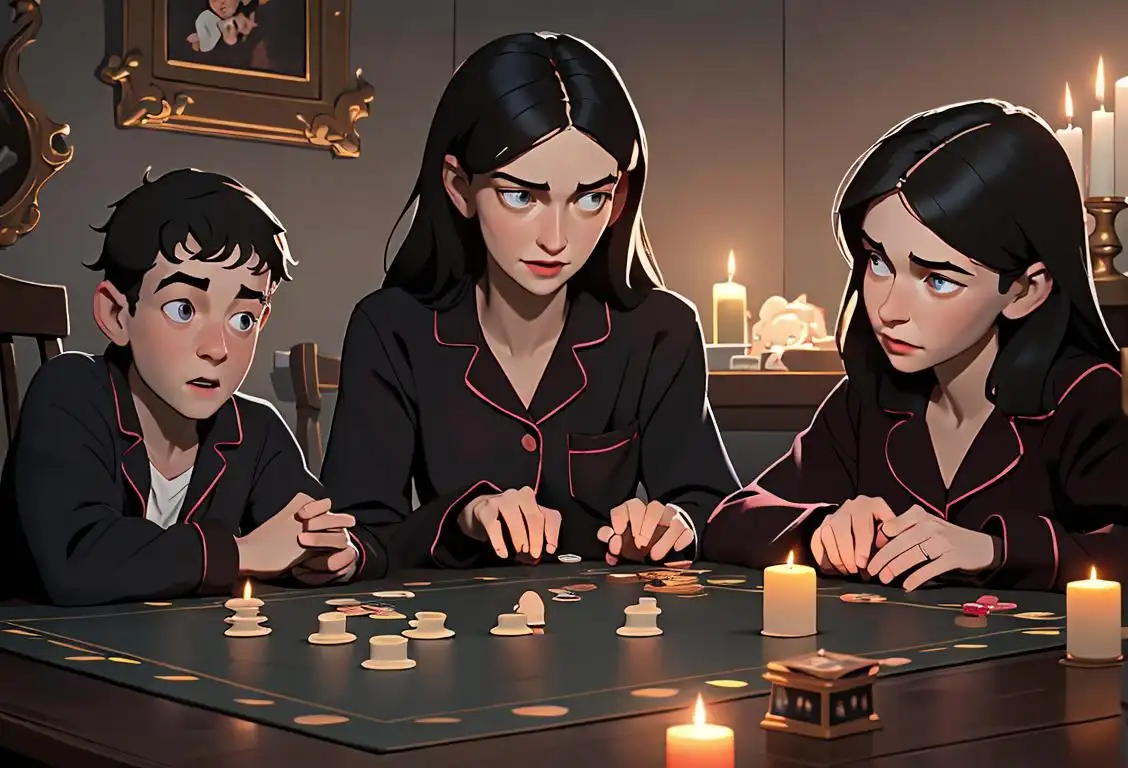National Blackout Day

Have you ever experienced a sudden loss of power, plunging your home into darkness? Well, on National Blackout Day, we pay homage to those moments when our beloved electricity decides to take a break and leave us feeling a little lost without it. Whether you light candles, tell ghost stories, or simply enjoy the stillness, National Blackout Day is a unique observance that reminds us to appreciate the gift of electricity and its absence.
When is Blackout Day?
It's national blackout day on the 23rd September.
The Origin of National Blackout Day
Let's dive into the history of National Blackout Day and explore its roots in the realm of internet culture. While the unofficial holiday doesn't have a specific date of establishment, its popularity has been steadily growing in recent years. It all started with a handful of internet users sharing stories about their experiences during power outages and blackout events. People gathered on social media platforms, like Twitter and Reddit, using the hashtag #NationalBlackoutDay to join the conversation and share their personal blackout tales.
Soon, National Blackout Day became an annual event where individuals from all walks of life could come together to laugh, commiserate, and celebrate the mysterious adventures that occur without electricity. From hilarious mishaps to soul-stirring moments of self-reflection, the internet community embraced this fun-filled observance with open arms and dimly lit spaces.
How to Celebrate
Now that you know the roots of National Blackout Day, let's explore some creative ways to embrace the darkness:
- Plan a romantic candlelit dinner with your loved one. Who needs fancy restaurants when you have the flickering glow of candlelight?
- Organize a blackout-themed game night with friends. Board games and card games become even more exciting in the dark.
- Unplug from technology and enjoy a night of quiet reflection. Use the time to journal, meditate, or simply savor the tranquility.
- Host a blackout party where everyone brings glow sticks and wears neon clothes. It's a true neon extravaganza!
- Take this opportunity to practice emergency preparedness. Learn how to navigate your home in the dark, find the nearest flashlight, and ensure you have essential supplies.
Remember, National Blackout Day is all about embracing the unexpected and finding joy in the absence of electricity. So, don't fret if your home is suddenly cast into darkness—just embrace the adventure!
History behind the term 'Blackout'
1877
Introduction of the term blackout in a theatrical context
The term blackout first emerged in 1877 in the world of theater. It referred to a technique used during live performances to create a sudden and complete absence of light, plunging the stage into darkness. This technique was employed to denote the end of an act or to transition between scenes.
1600s
Early Use in Maritime Context
The term 'blackout' originated in the 17th century during the age of sail. It referred to the practice of extinguishing or covering all lights on a ship during night operations to avoid detection by enemies or potential hazards. This was necessary to ensure the safety and stealth of naval vessels at sea.
1940
Widespread use of the term blackout during World War II
During World War II, the term blackout took on a new meaning. It referred to the protective measure of turning off all lights in cities to make them less visible to enemy aircraft during bombing raids. Blackouts were enforced to minimize the risk of attacks and to maintain secrecy about a city's location.
1880s
Transition to Electrical Context
With the advent of electricity and lighting systems, the term 'blackout' began to be used in an urban context. In the late 19th century, 'blackout' was adopted by theaters to indicate the darkening of stage lights between scenes or during dramatic moments. This technique aimed to create suspense and enhance the impact of performances.
1910s
World War I and Power Outages
During World War I, 'blackout' took on a new meaning related to power outages and darkness due to wartime measures. It became a crucial tactic to deter aerial attacks by making it harder for enemy aircraft to navigate and target urban areas. Blackouts were enforced by extinguishing or dimming public lighting, covering windows, and minimizing any visible light sources.
1977
The Great New York City Blackout
In 1977, New York City experienced a major blackout that lasted for 25 hours. This event was triggered by a lightning strike on an electrical transmission line, causing a cascade failure throughout the city's power grid. The blackout resulted in widespread looting, arson, and vandalism, and it became a turning point in the city's history, highlighting issues with infrastructure and urban decay.
2003
The Northeast blackout of 2003
On August 14, 2003, the Northeastern United States and parts of Canada experienced a massive blackout that affected over 50 million people. The blackout was caused by a software bug in the alarm system at an Ohio control room. This event shed light on the vulnerability of interconnected power systems and led to significant improvements in power grid reliability and monitoring.
1930s
Air Raid Precautions and Blackouts
The term 'blackout' gained widespread use during the 1930s in relation to air raid precautions. As tensions escalated in the buildup to World War II, governments around the world implemented blackout measures to protect civilians from night-time air raids. These precautions involved mandatory extinguishing or masking of lights, such as streetlights and residential lighting, to minimize the visibility of targets for enemy aircraft.
2004
The birth of Earth Hour
In 2004, the term blackout gained a new connotation as the international environmental movement known as Earth Hour was established. Earth Hour encourages individuals, communities, and businesses around the world to turn off non-essential lights for one hour as a symbol of their commitment to the planet. It has since grown into a global event that raises awareness about environmental issues and the need for sustainable action.
1950s
The Television 'Blackout'
In the 1950s, the term 'blackout' extended its meaning to the world of television. A 'blackout' referred to the temporary interruption or loss of television broadcasts due to technical issues or contractual disputes. During these incidents, viewers would experience a sudden and complete loss of signal, resulting in a 'blackout' screen, devoid of any program content.
2000s
Social Media Blackouts
In the modern era, the term 'blackout' has evolved to include social media activism. Online 'blackouts' have become a form of protest or solidarity where users refrain from posting or engaging with content as a means of drawing attention to important social, political, or environmental issues. These digital 'blackouts' aim to raise awareness and spark discussions on various societal concerns.
Did you know?
Did you know that the longest recorded power outage in history took place in India in 2012? It lasted for a whopping 2 days and affected over 600 million people! Talk about an unplanned vacation from electricity!Tagged
romance fun loved onesFirst identified
4th October 2015Most mentioned on
23rd September 2016Total mentions
677Other days
Love Your Red Hair Day
Do Something Nice Day
Suicide Prevention Month Day
Kissing Fried Chicken Day
Kiss A Ginger Day
Iloveyou Day
Compliment Day
Happiness Day
Tv On The Same Day
Boyf Day









